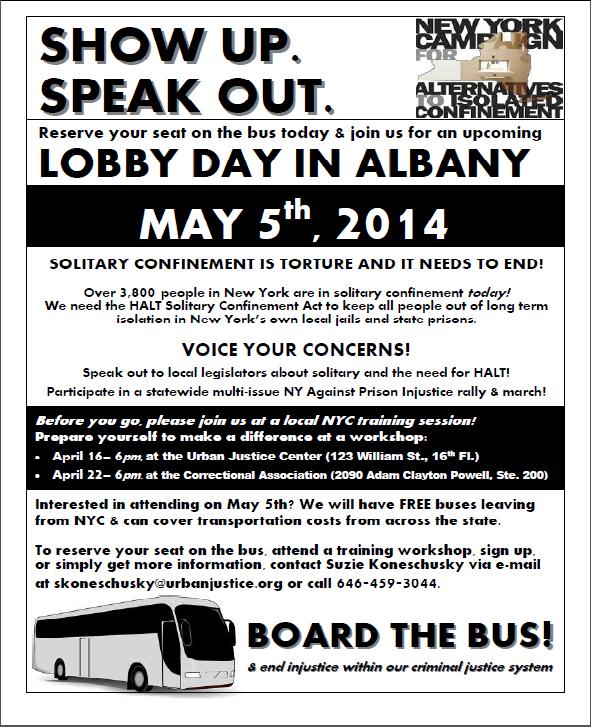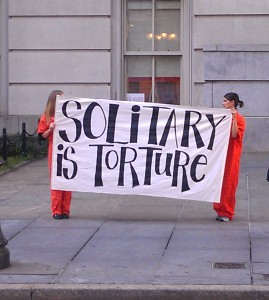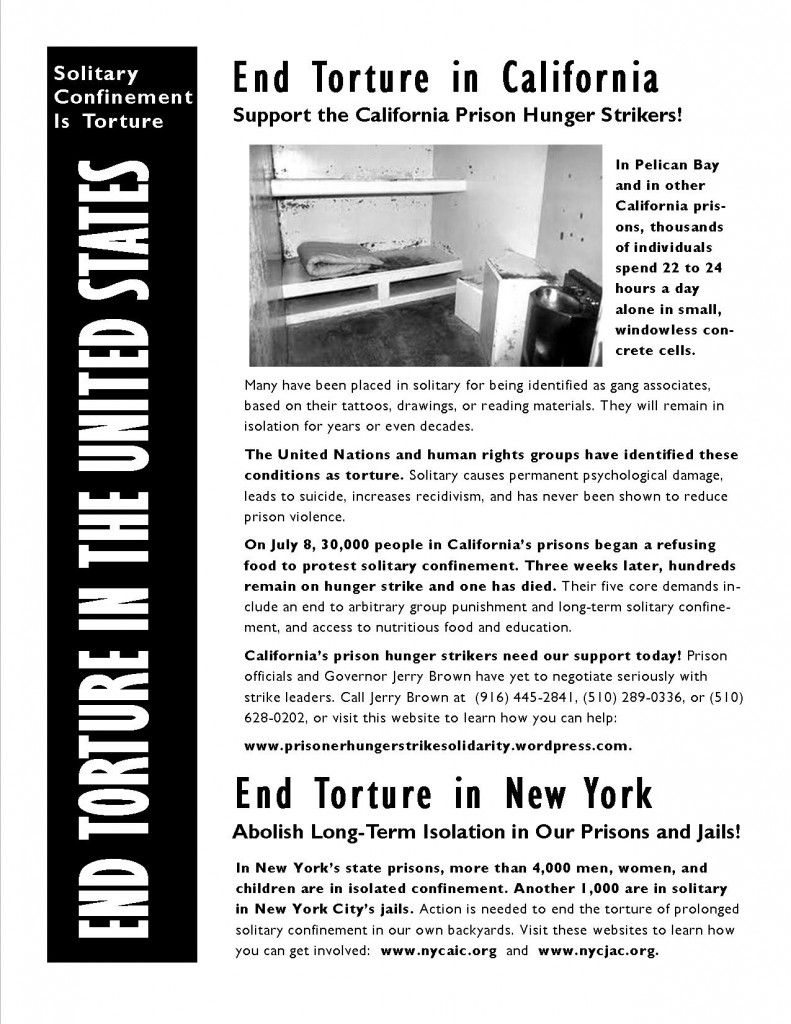By Victoria Law. Excerpted from Gothamist.
No one knows exactly how many people are held in solitary confinement throughout New York State. There’s the SHU, or Special Housing Unit, a special unit dedicated to locking people away from other. Then there’s keeplock, where people are confined to the cells in their housing units. There’s also protective custody, where people fearing or at risk for violence, are confined. In each of these, people are held in their cells for at least 23 hours each day. Often, their only human contact is with the guard that brings them their food or handcuffs them before bringing them to the shower three times each week. Some have spent years, and sometimes decades, in isolation.
While Rikers Island records the numbers of those who are isolated isolated, no data is compiled from jails throughout the state. As of September 1, 2017, state prisons held 2,886 people in SHUs. Approximately 1,000 people are held in keeplock, where people are confined to the cells in their housing units.
A group called Photo Requests from Solitary asks these people held in isolation what they would like to see. Volunteer artists then take on these requests, sometimes creating original images, sometimes digging through their existing works to find one that fits…
Some of the works provided to prisoners through Photo Requests from Solitary are currently on display at Photoville in DUMBO. On Wednesday night, Johnny Perez and other volunteers from the New York Campaign for Alternatives to Isolated Confinement greeted visitors examining the pictures.
For Perez, the issue of solitary confinement is personal. During his 13 years in prison, he spent an accumulated three years in solitary confinement, often in cells less than half the size of the 20′ x 8′ foot container. In one prison, the six-foot-tall Perez could touch the cell walls on either side whenever he stretched his arms. “That’s how big some of the cells are,” he said.
Perez was released before Photo Requests from Solitary reached New York’s prisons. But he knows the value of an image. Being in prison, he explained, means “never crossing the street for 13 years. Not seeing trees or grass. Solitary is a space so deprived of sensory stimulation. It’s easy to get psychologically boxed in.”…
Read the full article — and view the photos — at Gothamist.







Follow the #HALTsolitary Campaign